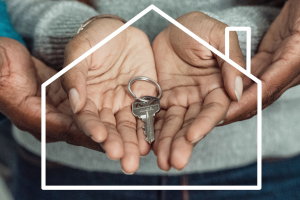The Hidden Costs of Homeownership: How to Plan and Budget Effectively
For many people, owning a home is a dream come true. It's a sign of financial stability and provides a sense of security. However, owning a home comes with hidden costs that can quickly add up and strain your budget. In this article, we'll explore the hidden costs of homeownership and provide tips on how to plan and budget effectively.
Maintenance and Repairs
Maintenance and repairs are a necessary part of homeownership that can add up quickly. As a homeowner, you're responsible for maintaining your property and making any necessary repairs. This can include routine tasks like cleaning gutters and changing air filters, as well as larger projects like replacing a roof or fixing a foundation issue.
It's important to budget for maintenance and repairs so that you're prepared when unexpected issues arise. Experts suggest setting aside 1% to 3% of your home's value for annual maintenance and repairs. By doing so, you can avoid being caught off guard by a costly repair bill.
It's also a good idea to keep up with routine maintenance tasks, as this can help prevent more expensive repairs down the line. For example, cleaning gutters can prevent water damage to your home, while changing air filters can improve the efficiency of your HVAC system and prolong its lifespan.
When it comes to repairs, it's important to address issues promptly. Ignoring a problem can lead to further damage and cost you more in the long run. If you're not comfortable tackling a repair yourself, it's worth hiring a professional to ensure the job is done correctly.
Property Taxes
Another hidden cost of homeownership is property taxes. Property taxes are based on the value of your home and are assessed by your local government. They can vary significantly based on where you live and can increase over time.
It's important to budget for property taxes and to understand how they're calculated. Your mortgage lender may include your property taxes in your monthly payment, so make sure you understand how much you're paying and where the money is going.
Homeowners Insurance
Homeowners insurance is another cost that can catch homeowners off guard. Homeowners insurance policy protects your home and personal belongings in the event of damage or theft. The cost of homeowners insurance can vary based on your home's value, location, and other factors.
When you're budgeting for homeowners insurance, it's important to shop around and compare policies. Look for a policy that provides adequate coverage at an affordable price. You may also be able to save money by bundling your homeowners insurance with other types of insurance, such as auto insurance.
Utilities
When you own a home, you're responsible for paying for utilities such as electricity, gas, and water. These costs can add up quickly, especially if you live in an area with extreme weather conditions.
To budget for utilities, look at your past bills and identify any trends. For example, you may use more electricity in the summer when you're running your air conditioner. Use this information to estimate your future costs and create a budget.
HOA Fees
If you live in a neighborhood with a homeowners association (HOA), you may be required to pay HOA fees. These fees cover the cost of maintaining common areas such as parks, pools, and playgrounds.
HOA fees can vary based on the size of your neighborhood and the amenities that are offered. It's important to budget for HOA fees and to understand what they cover.
Final Thoughts
Owning a home comes with many benefits, but it also comes with hidden costs. To plan and budget effectively, it's important to understand these costs and to set aside money for them. By doing so, you'll be able to enjoy your home without breaking the bank.








